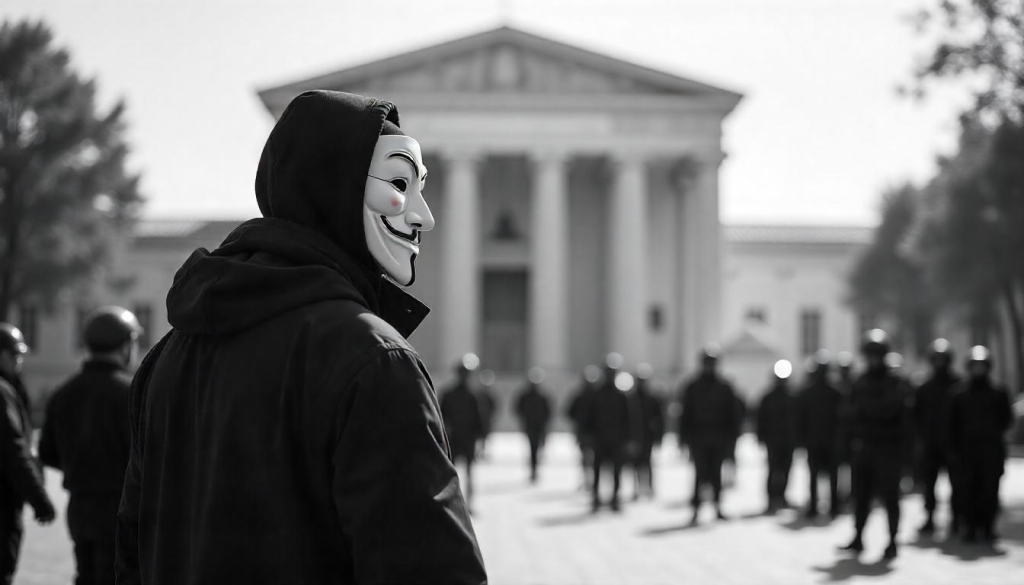The phrase “We Are Anonymous” is much more than just a slogan—it represents a powerful digital movement. This statement is the identity of Anonymous, a global group of hacktivists known for operating in secrecy and fighting for freedom, justice, and digital rights. But what does it really mean when someone says, “We are Anonymous”? Let’s explore.

The Origins of the Anonymous Collective
The Anonymous movement started around the mid-2000s, originally taking shape on the internet forum 4chan. On that platform, people who didn’t pick a username were simply labeled “Anonymous.” Over time, the term evolved into something much bigger. Users began organizing actions under this shared name, giving rise to a new kind of online collective. What began as internet trolling gradually transformed into political activism. One of their first serious campaigns, Project Chanology, targeted the Church of Scientology in 2008. This event marked the group’s transition into serious hacktivism and solidified the identity of Anonymous.
Breaking Down the Famous Slogan
Anonymous is best known for its chilling catchphrase:
“We are Anonymous. We are Legion. We do not forgive. We do not forget. Expect us.”
Let’s look at what each part symbolizes:
-
We are Anonymous – A declaration that individuals have merged into a collective without revealing personal identities.
-
We are Legion – Suggests that there are countless members around the world, acting together as one.
-
We do not forgive, we do not forget – A warning to oppressors and corrupt powers that justice will be sought.
-
Expect us – A promise (or threat) that Anonymous could act at any moment, anywhere.
Each line represents the group’s mission of unity, retaliation, and unpredictability.
The Symbol: Guy Fawkes Mask
Anonymous is almost always associated with the Guy Fawkes mask, made popular by the movie V for Vendetta. This mask stands as a symbol of resistance against tyranny. For members and supporters, it represents rebellion, justice, and the idea that anyone can take a stand—even anonymously. When protesters across the globe wear the mask, they’re showing that Anonymous isn’t about one person—it’s about everyone.
What Anonymous Stands For
At its core, Anonymous fights for:
-
Freedom of information
-
Online privacy
-
Anti-censorship
-
Government transparency
-
Opposition to corruption
Members join not for fame or money but to make an impact. Actions can range from exposing government secrets to taking down websites of powerful institutions.
Major Operations by Anonymous
Over the years, Anonymous has been part of many global digital protests, such as:
-
Operation Payback – Targeted companies like MPAA and RIAA for anti-piracy campaigns.
-
Support for WikiLeaks – Attacked companies that cut ties with WikiLeaks (e.g., PayPal and Visa).
-
Arab Spring – Assisted activists in Tunisia and Egypt by providing tools to bypass government firewalls.
-
Operation Ferguson – Reacted to police brutality in Ferguson, Missouri by exposing and pressuring local authorities.
Each campaign reflected the group’s mission to challenge injustice—especially where the mainstream media or governments were silent.
How Anonymous Operates
One of the most fascinating things about Anonymous is that it has no central leadership. There’s no boss, no head office, and no strict rules. Anyone can be part of Anonymous. Most actions are coordinated through online forums, encrypted chats, and social media. If enough people agree with an idea, it gets momentum. This loose, leaderless system makes the group nearly impossible to stop—and extremely adaptable.
Supporters vs. Critics
Anonymous is a polarizing force. Supporters see them as freedom fighters and digital Robin Hoods. Critics, on the other hand, argue that their tactics—like DDoS attacks—can cause collateral damage, disrupting services for innocent users. Because the group is decentralized, some participants may pursue personal agendas, which raises ethical concerns. The debate continues: is Anonymous a group of heroes, vigilantes, or cybercriminals?
The Lasting Impact of Anonymous
Regardless of one’s opinion, there’s no denying Anonymous has changed the way we view online activism. They’ve influenced other hacker groups, inspired global protests, and sparked important conversations about censorship and surveillance. Even when the group is quiet, the threat of “Expect us” still lingers. Governments, corporations, and even the media are aware that Anonymous can strike when least expected.
Final Thoughts: More Than Just a Name
“We are Anonymous” is more than a phrase. It’s a declaration of unity among individuals who believe in using the power of technology to challenge authority, expose lies, and promote truth. Anyone can be Anonymous. There are no applications, no membership cards. It’s a mindset—one that continues to influence how people fight for freedom in the digital world.